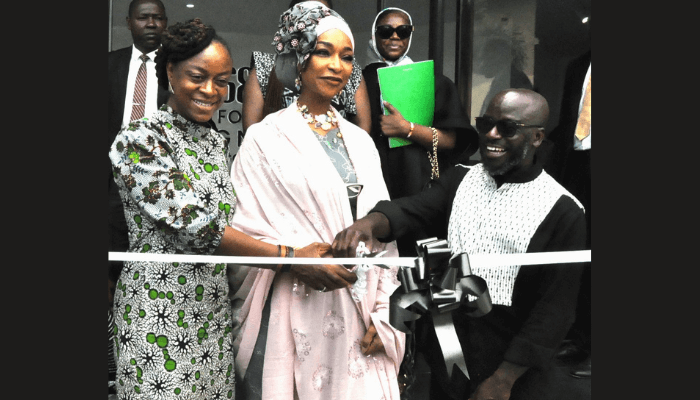Ananse is betting on fashion to power Nigeria’s projected $15 billion creative economy in 2025. Through its newly launched Centre for Design in Lagos, the company is turning creative talent into a structured, job-creating, export-driven ecosystem.
Launched on October 10, in partnership with the Mastercard Foundation and supported by the Ministry of Art, Culture and the Creative Economy, the initiative seeks to equip thousands of young designers across Nigeria with the tools to create and the skills to build viable businesses.
“Our goal is to transform creative talent into sustainable livelihoods, said Samuel Mensah, founder and CEO of Ananse. “By combining training, infrastructure, and market access, we’re helping young entrepreneurs move from being talented designers to successful business owners.”
At the heart of the new centre is a five-module training program that goes beyond tailoring and design. Creatives are also taught accounting, intellectual property protection, customer service, operations, and digital marketing; the missing skills that often keep Nigerian artisans trapped in informality.
Mensah explained that while the hands-on technical sessions cover product design and quality assurance, four out of the five modules focus on business and digital growth. “We need to make sure that when you start a fashion business, you know how to run all the departments—from sales to operations. That’s how we move from being just tailors to becoming employers,” he said.
This focus on formalisation and entrepreneurship directly answers one of the creative sector’s biggest challenges: informality. Despite contributing billions to GDP, most of Nigeria’s creative workers operate outside the formal economy, unregistered, untaxed, and unbanked. The Ananse model aims to change that by giving them a pathway to register at SMEs, access finance, and tap into export opportunities.
Hannatu Musa Musawa, minister of Art, Culture and the Creative Economy, said, “This initiative addresses long-standing gaps in Nigeria’s creative sector; particularly the lack of professional support structures for young entrepreneurs.” She added, “by investing in creativity, we’re investing in jobs, innovation, and national pride.”
The Lagos centre serves as a test case for a network of hubs to be replicated across Nigeria’s six geopolitical zones. Mensah estimated that the initiative could generate 50,000 jobs and could complement the government’s broader creative economy strategy. The strategy targets 2.57 million jobs across the sector by 2030, with around 800,000 expected to come from fashion alone.
Speaking at the launch was Rosy Fynn, Country director, Nigeria Program, Mastercard Foundation, said, “Our partnership with Ananse and the unveiling of the Centre for Design Lagos reflects the Mastercard Foundation’s strategic commitment to the creative sector as a catalyst for youth opportunity. By bringing together training, infrastructure, and access to markets, the Centre creates pathways for young people, especially young women, to thrive, build sustainable livelihoods, and contribute meaningfully to inclusive economic growth.”
Other international partners of the project include DHL, Ecobank, and the African Union.
The ambition is not just job creation but also industrialisation. Mensah acknowledged persistent challenges in supply chains and access to materials, noting that many designers lose international orders because they can’t find fabrics or secure small-scale financing. “Sometimes a designer gets an order but can’t fulfil it because there’s no capital or the right material in the market. That’s why we’re working with textile bodies to address the supply chain side,” he said.
The Ananse Centre is ultimately pioneering economic engineering: one that connects creativity to commerce, and art to employment. By blending business education, technology, and strategic partnerships, it represents a blueprint for how Nigeria’s creative industry can evolve from scattered talent to structured prosperity.
“We want to make Nigeria the home of African fashion,” Mensah said. “If we can get this right, it’s not just designers who win. It’s the entire economy.”

